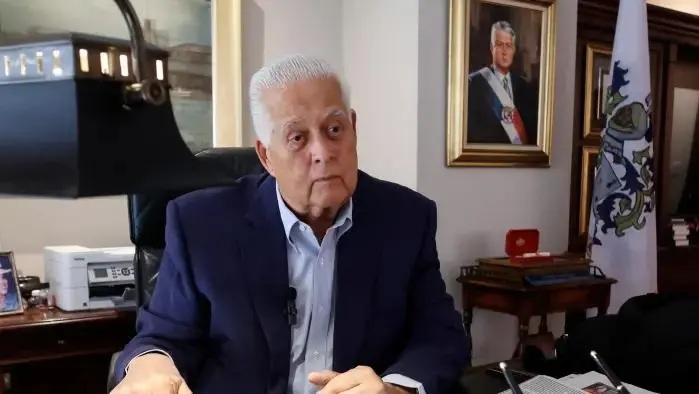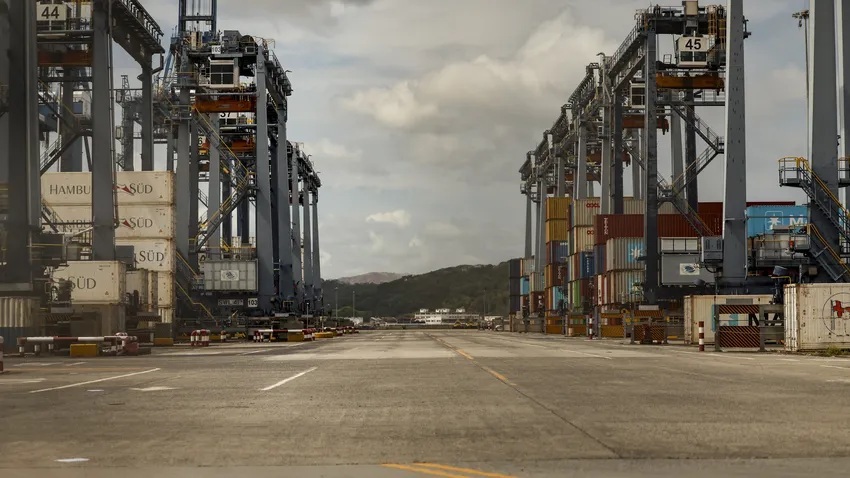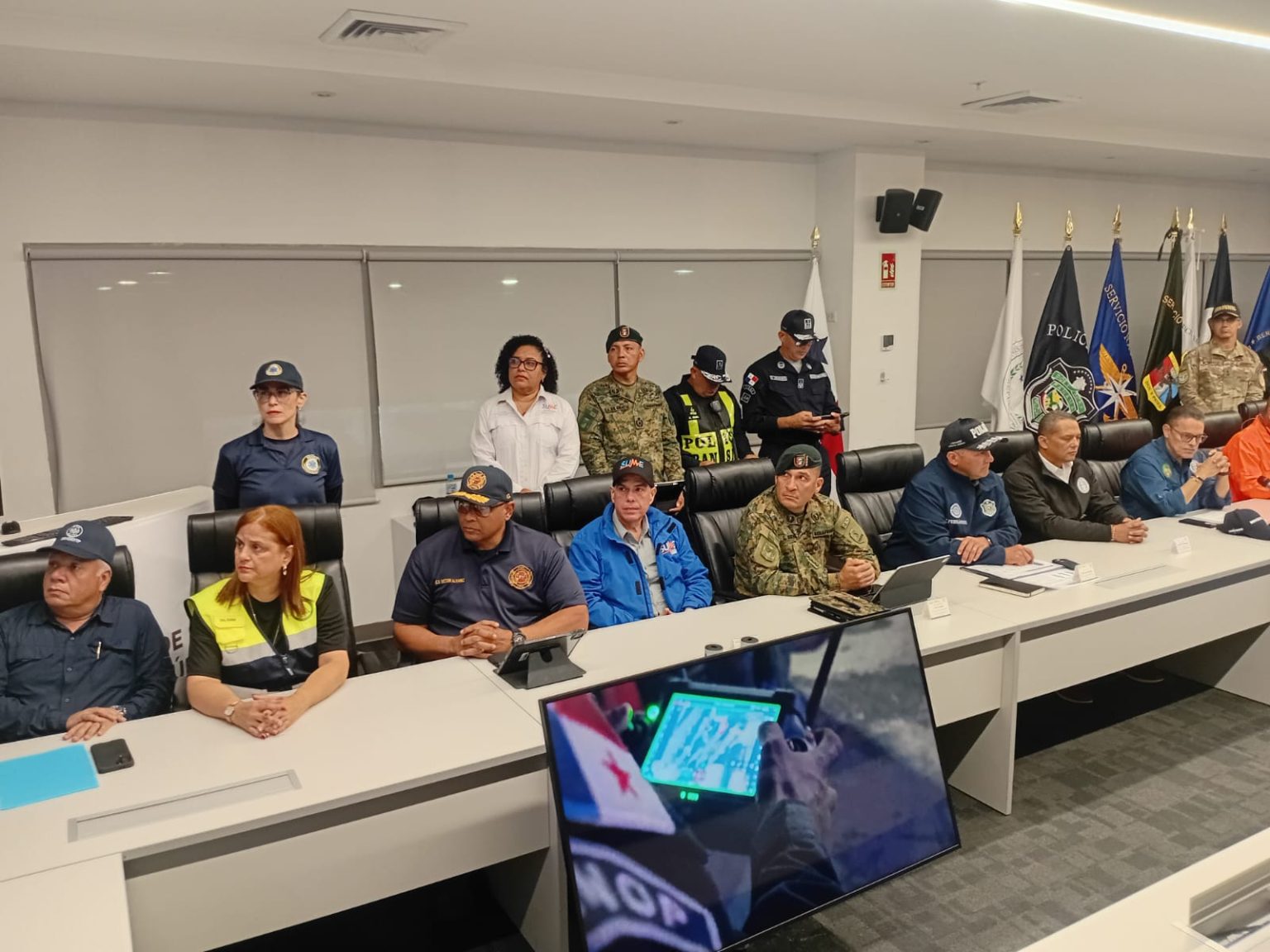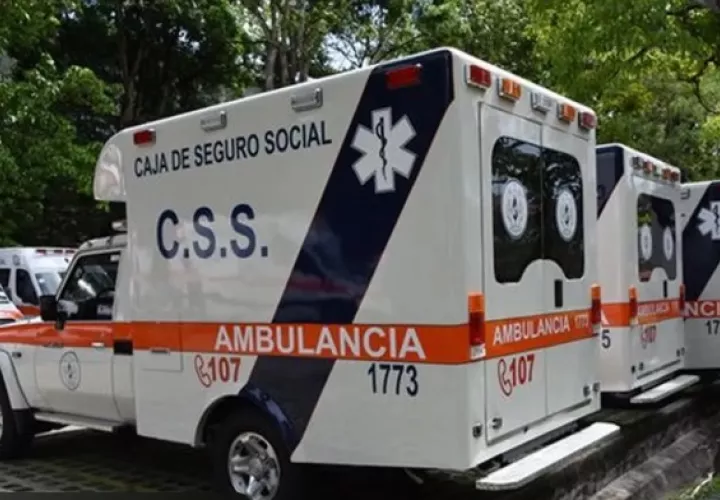Canal tugs and ACP in push-pull dispute

TUG BOAT Captains and deck officers who play a key role in moving ships through the Panama Canal are engaged in another push and pull dispute with the Panama Canal Authority (ACP) over their demand to be recognized as a union.
Currently tugboats assist ships during their transit through the Canal, mainly in the inputs and outputs of the locks and during their passage through the Gaillard Cut, where greater maneuverability and power is needed.
The 240 people who ensure the safe passage of ships are promoting the creation of a union or “exclusive representative” allowing them to negotiate a collective agreement with management.
With the new locks, tugs will be responsible for guiding ships into and through the locks.
“We are guarantors of security in the Canal and the new locks come to play a more important role because now we have to make full transit of the ship in the lock,” says Francisco Crespo Mendez, general secretary of the Union of Captains and Deck Officers (UCOC).
With the current system, the job of guiding the ship is done by locomotives that run on rails placed on one side of the locks.
With the third set of locks, possibly in operation early 2016, tugs must drive the boats through the locks Their size may be up to three times that of panamax, vessels currently transiting the Canal.
Masters and officers are concerned reports La Prensa because they feel they have not been given adequate training to meet the new operations and have not been include din any technical committee discussing operations of the new locks. “It’s an exclusive administration,” says one of the leader of UCOC.
The Canal administration says that in addition to simulators, it plans to charter a post-panamax ship to complement the training of pilots and tug captains who will be involved in the operation and technical considerations of the new locks. The vessel will be used several months before the opening of the expanded Canal for live testing
Panamanian law allows the creation of unions within the Canal but prohibits strikes. UCOC leaders say they will continue the struggle for the creation of a union.
They call for exclusive representation because, they say, they are the masters and officers who must discuss the issues that affect them as technical operators.
The tugboat captains and officers previously belonged to another organization of Canal workers and, as a first step to becoming a union, 10 years ago requested the creation of a bargaining unit that would allow them to have a union to discuss labor issues directly with the administration and not through other unions.
The first attempt was in 2003 when the organization asked the Labor Relations Board (JRL) certification of a new bargaining unit. Two years later the JRL denied the request.
The organization of went to the Supreme Court, which, in 2008 reversed the JRL Again captains and deck officers asked the JRL for the bargaining unit.
This time the JRL not only recognized the UCOC as a trade union, but also issued certification.
“The issue is sensitive because the rights to unionize derived from the Constitution,” says UCOC’s Crespo Mendez.
Crespo cites Article 95 of the Basic Law of the ACP, which states that a worker belonging to a bargaining unit shall have the right to form, join or participate freely in a union, or refrain from it, and in any case be protected in the exercise of its right.
Over 90% of the Canal’s 9,900 workforce, is bonded in six bargaining units represented by 12 unions.
The ACP Management recognizes that the decision of the Supreme Court decision that the captains may have a bargaining unit, but says they are not authorized to create a union. Administrator, Jorge Luis Quijano ,says the only unions that can exist are those that were in effect until 1999. “Let us be clear, that’s what it is. The JRL was never given the ability to decide on a union, “he said.Canal tugs and ACP in push-pull dispute
THE TUG BOAT Captains and deck officers who play a key role in moving ships through the Panama Canal are engaged in another push and pull dispute with the Panama Canal Authority (ACP) over their demand to be recognized as a union.
Currently tugboats assist ships during their transit through the Canal, mainly in the inputs and outputs of the locks and during their passage through the Gaillard Cut, where greater maneuverability and power is needed.
The 240 people who ensure the safe passage of ships are promoting the creation of a union or “exclusive representative” allowing them to negotiate a collective agreement with management.
With the new locks, tugs will be responsible for guiding ships into and through the locks.
“We are guarantors of security in the Canal and the new locks come to play a more important role because now we have to make full transit of the ship in the lock,” says Francisco Crespo Mendez, general secretary of the Union of Captains and Deck Officers (UCOC).
With the current system, the job of guiding the ship is done by locomotives that run on rails placed on one side of the locks.
With the third set of locks, possibly in operation early 2016, tugs must drive the boats through the locks Their size may be up to three times that of panamax, vessels currently transiting the Canal.
Masters and officers are concerned reports La Prensa because they feel they have not been given adequate training to meet the new operations and have not been include din any technical committee discussing operations of the new locks. “It’s an exclusive administration,” says one of the leader of UCOC.
The Canal administration says that in addition to simulators, it plans to charter a post-panamax ship to complement the training of pilots and tug captains who will be involved in the operation and technical considerations of the new locks. The vessel will be used several months before the opening of the expanded Canal for live testing
Panamanian law allows the creation of unions within the Canal but prohibits strikes. UCOC leaders say they will continue the struggle for the creation of a union.
They call for exclusive representation because, they say, they are the masters and officers who must discuss the issues that affect them as technical operators.
The tugboat captains and officers previously belonged to another organization of Canal workers and, as a first step to becoming a union, 10 years ago, requested the creation of a bargaining unit that would allow them to have a union to discuss labor issues directly with the administration and not through other unions.
The first attempt was in 2003 when the organization asked the Labor Relations Board (JRL) certification of a new bargaining unit. Two years later the JRL denied the request.
The organization of went to the Supreme Court, which, in 2008 reversed the JRL ruling. Again captains and deck officers asked the JRL for a bargaining unit.
This time the JRL not only recognized the UCOC as a trade union, but also issued certification.
“The issue is sensitive because the rights to unionize derived from the Constitution,” says UCOC’s Crespo Mendez.
Crespo cites Article 95 of the Basic Law of the ACP, which states that a worker belonging to a bargaining unit shall have the right to form, join or participate freely in a union, or refrain from it, and in any case be protected in the exercise of its right.
Over 90% of the Canal’s 9,900 workforce, is bonded in six bargaining units represented by 12 unions.
The ACP Management recognizes that the decision of the Supreme Court decision that the captains may have a bargaining unit, but says they are not authorized to create a union. Administrator, Jorge Luis Quijano ,says the only unions that can exist are those that were in effect until 1999. “Let us be clear, that’s what it is. The JRL was never given the ability to decide on a union, “he said.Canal tugs and ACP in push-pull dispute
THE TUG BOAT Captains and deck officers who play a key role in moving ships through the Panama Canal are engaged in another push and pull dispute with the Panama Canal Authority (ACP) over their demand to be recognized as a union.
Currently tugboats assist ships during their transit through the Canal, mainly in the inputs and outputs of the locks and during their passage through the Gaillard Cut, where greater maneuverability and power is needed.
The 240 people who ensure the safe passage of ships are promoting the creation of a union or “exclusive representative” allowing them to negotiate a collective agreement with management.
With the new locks, tugs will be responsible for guiding ships into and through the locks.
“We are guarantors of security in the Canal and the new locks come to play a more important role because now we have to make full transit of the ship in the lock,” says Francisco Crespo Mendez, general secretary of the Union of Captains and Deck Officers (UCOC).
With the current system, the job of guiding the ship is done by locomotives that run on rails placed on one side of the locks.
With the third set of locks, possibly in operation early 2016, tugs must drive the boats through the locks Their size may be up to three times that of panamax, vessels currently transiting the Canal.
Masters and officers are concerned reports La Prensa because they feel they have not been given adequate training to meet the new operations and have not been include din any technical committee discussing operations of the new locks. “It’s an exclusive administration,” says one of the leader of UCOC.
The Canal administration says that in addition to simulators, it plans to charter a post-panamax ship to complement the training of pilots and tug captains who will be involved in the operation and technical considerations of the new locks. The vessel will be used several months before the opening of the expanded Canal for live testing
Panamanian law allows the creation of unions within the Canal but prohibits strikes. UCOC leaders say they will continue the struggle for the creation of a union.
They call for exclusive representation because, they say, they are the masters and officers who must discuss the issues that affect them as technical operators.
The tugboat captains and officers previously belonged to another organization of Canal workers and, as a first step to becoming a union, 10 years ago requested the creation of a bargaining unit that would allow them to have a union to discuss labor issues directly with the administration and not through other unions.
The first attempt was in 2003 when the organization asked the Labor Relations Board (JRL) certification of a new bargaining unit. Two years later the JRL denied the request.
The organization of went to the Supreme Court, which, in 2008 reversed the JRL Again captains and deck officers asked the JRL for the bargaining unit.
This time the JRL not only recognized the UCOC as a trade union, but also issued certification.
“The issue is sensitive because the rights to unionize derived from the Constitution,” says UCOC’s Crespo Mendez.
Crespo cites Article 95 of the Basic Law of the ACP, which states that a worker belonging to a bargaining unit shall have the right to form, join or participate freely in a union, or refrain from it, and in any case be protected in the exercise of its right.
Over 90% of the Canal’s 9,900 workforce, is bonded in six bargaining units represented by 12 unions.
The ACP Management recognizes that the decision of the Supreme Court decision that the captains may have a bargaining unit, but says they are not authorized to create a union. Administrator, Jorge Luis Quijano ,says the only unions that can exist are those that were in effect until 1999. “Let us be clear, that’s what it is. The JRL was never given the ability to decide on a union, “he said.





